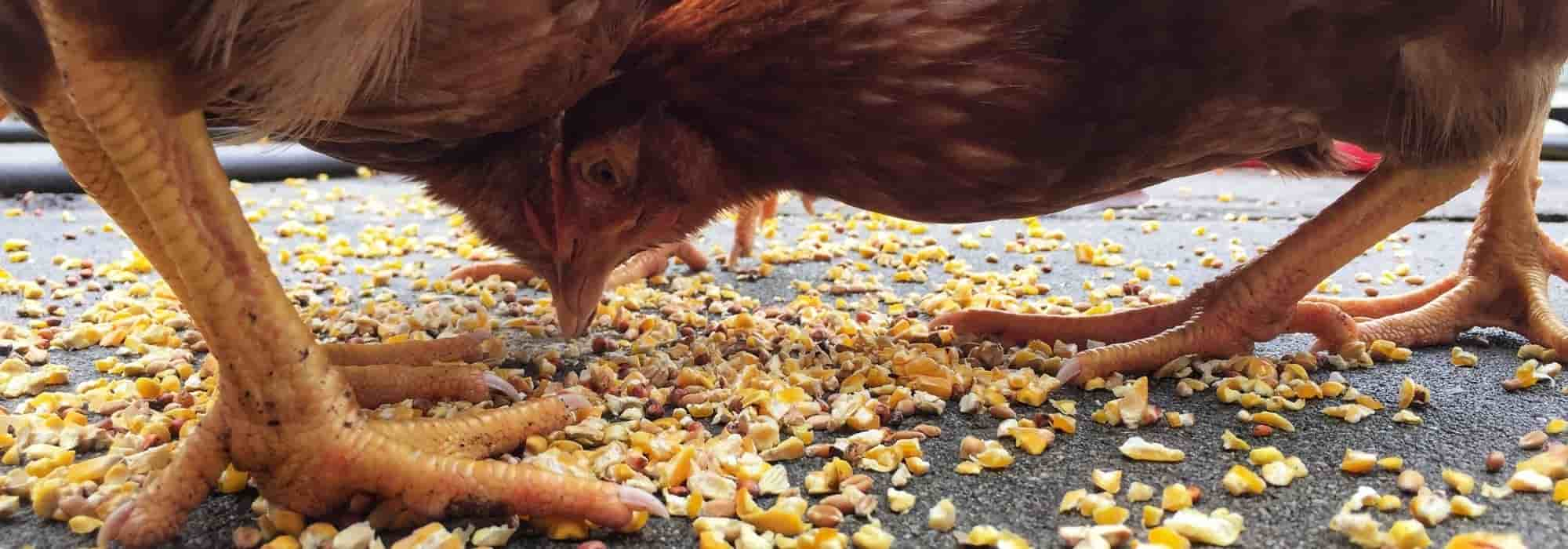
Forbidden foods for chickens
Because chickens don't eat all foods!
Contents
In recent years, more and more local authorities have been encouraging their residents to adopt chickens; some even contribute to the funding of chicken coops, while others offer pairs of red hens. Start-ups have even emerged to support and promote these initiatives, bringing chickens into the lives of city dwellers, often longing for the countryside. The argument put forward is always the same: the chicken lightens our bins, as it is an exceptional consumer of organic waste. One chicken can eat up to 150 kg of table scraps per year. That’s a significant amount that won’t end up in the bin. Indeed, it is true that the chicken is an omnivorous animal. However, it is not a bin to which you can give anything and everything, “as long as it’s edible!” Some foods are prohibited for chickens mainly due to the toxicity of their components.
An overview of what should not be on your chickens’ menu.
Fruits that should not be given to chickens
In general, hens enjoy fruits such as apples or pears, as well as cherries and peaches. The flesh of these fruits is tender and sweet and poses no problem. However, the stones or pips of these fruit trees from the Rosaceae family raise concerns. Indeed, they all contain amygdalin, a chemical compound that converts into cyanide when the stones and pips are crushed. This is simply because nature is well designed! To fruit and reproduce, these trees need animals to transport these stones and pips intact through their digestive systems.
However, the amount of amygdalin is so minimal that occasional consumption poses no danger to hens, which, in any case, swallow the pips without chewing them.
Fruits that are dangerous and toxic to hens
That said, the ingestion of certain other fruits can be more dangerous:
- Avocado contains persin, a fungicidal toxin that infiltrates the fruit from the seeds. Therefore, it is forbidden to give hens the skin and stone of avocados, as well as the leaves or, to a lesser extent, the flesh. This can lead to myocardial necrosis with increased heart rate, agitation or apathy, and even death in high doses.
- Kiwi contains a significant amount of histamine, a molecule responsible for many allergic symptoms in humans. In hens, it can cause numerous irritations, particularly in the digestive system.
- Rhubarb contains oxalate, a compound from the oxalic acid family that causes kidney stones. It is therefore not recommended to give hens rhubarb leaves or stalks, as the kidneys could be affected.
- Citrus fruits are high in citric acid, which can have consequences on egg-laying.
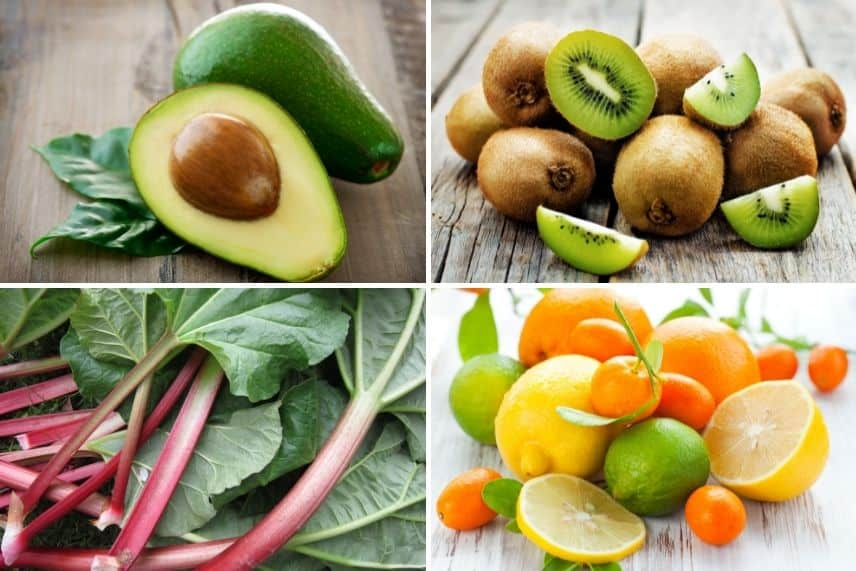 Fruits to ban from hens’ diet
Fruits to ban from hens’ diet
Solanaceae to avoid for hens
This category includes tomatoes, aubergines, peppers and chillies, and potatoes. All contain solanine, a toxin secreted by plants to counter attacks from parasites or insects. This solanine is present in the leaves and flowers, but also, at a high concentration, in the fruits or tubers when they are green. This is why it is not recommended for us humans to consume green potatoes. And it is even more true for hens!
Therefore, never give your hens raw, green, or sprouted potatoes and avoid the skins, even when cooked. Similarly, green tomatoes, aubergines, peppers, and chillies should be avoided, as they can cause severe digestive disorders. Ripe ones can be included in their diet, but in very small quantities and rarely.
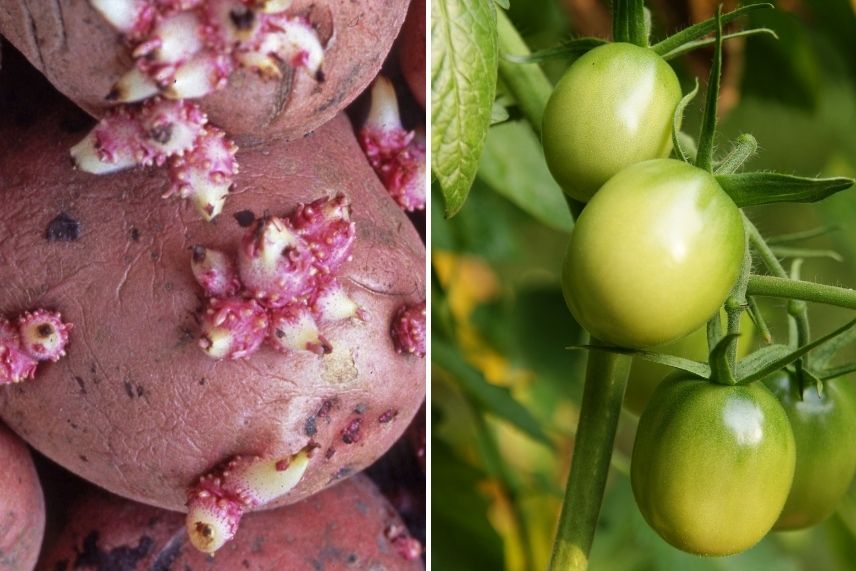 Containing solanine, sprouted, raw, or green potatoes and green tomatoes are prohibited for hens
Containing solanine, sprouted, raw, or green potatoes and green tomatoes are prohibited for hens
Vegetables to Avoid in a Chicken's Diet
Chickens will never be as happy as when you offer them beautiful leaves of lettuce or cabbage, carrot or beetroot peelings, bolting spinach, or slightly hard turnips… However, some vegetables are off-limits for them.
All members of the Allium family should be avoided, including the trio of onion, garlic, and shallot, as well as leeks, spring onions, and chives. All contain sulfur compounds that can cause difficulties in oxygen transport in the blood when consumed in high doses or continuously. Therefore, whether raw or cooked, these vegetables should not be offered to chickens.
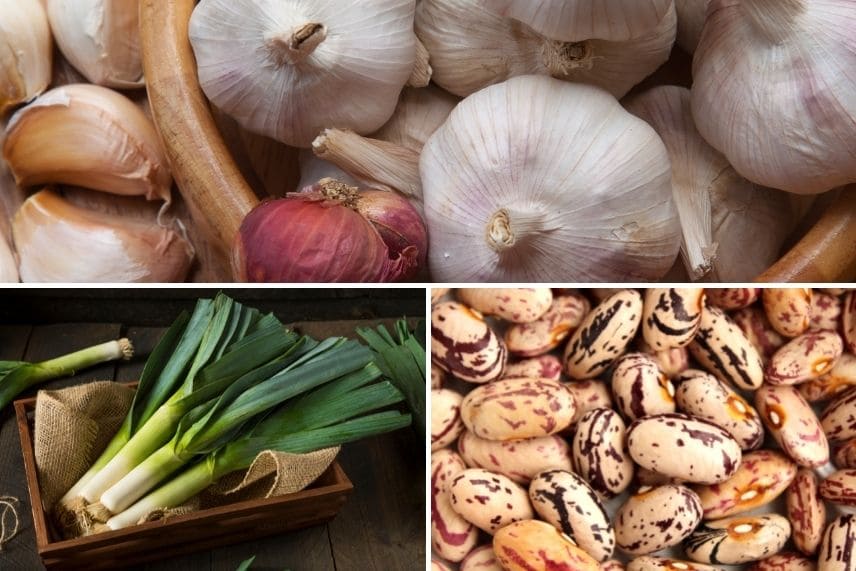
More foods that should not be included in chickens’ diets
The other vegetable that is forbidden for chickens is the bean, but in its dry and raw form. It is also prohibited for humans, even though it seems illogical to eat uncooked dry beans. However, a chicken may enjoy pecking at them… Nevertheless, this should be absolutely avoided as these dry beans contain phytohaemagglutinin, a protein that agglutinates red blood cells. Only soaking and cooking can eliminate this substance. You can therefore give beans, and more generally dried vegetables like lentils or chickpeas, provided they are well cooked.
All other foods to avoid for healthy chickens
Chickens love table scraps such as pasta or rice, vegetable dishes, or grated and chopped raw vegetables. However, other culinary preparations or manufactured foods should not be included in their diet.
- Chocolate and cocoa are deadly for chickens, even in small amounts. Theobromine, a toxin found in cocoa pods, is to blame. Therefore, it is out of the question to offer a square of chocolate, a slice of mousse, or a piece of cake to your hens.
- Prepared meals and industrial desserts that are too high in salt and sugar. This category also includes crisps, sweet or savoury biscuits, and other peanuts.
- All spoiled, mouldy, or rotten foods such as fruits and vegetables, as well as meat and fish. Let’s repeat, your chickens are not rubbish bins! As for meat and fish, it is better to cook them and incorporate them, in very small amounts, into their feed. Processed meats are not recommended as they are too high in fat.
- Dairy products like milk or yoghurt. However, cheese rinds are very much appreciated by hens!
- Coffee and tea, but reasonably, who would think of offering a cup of coffee or tea to a chicken?
A few precautions to conclude
Chickens love root vegetables such as carrots, beetroots, and parsnips. However, these vegetables can be tough when raw and cut into large pieces. As for long peels, they can cause choking. Therefore, it is preferable to offer these vegetables cooked, or grated or blended. The peels can be cut into small pieces.
Bread often causes disagreements. Some owners give it to their hens, while others oppose it. Although bread has little nutritional value and is high in salt, it can help thicken a soup or mash when soaked in water or vegetable broth.
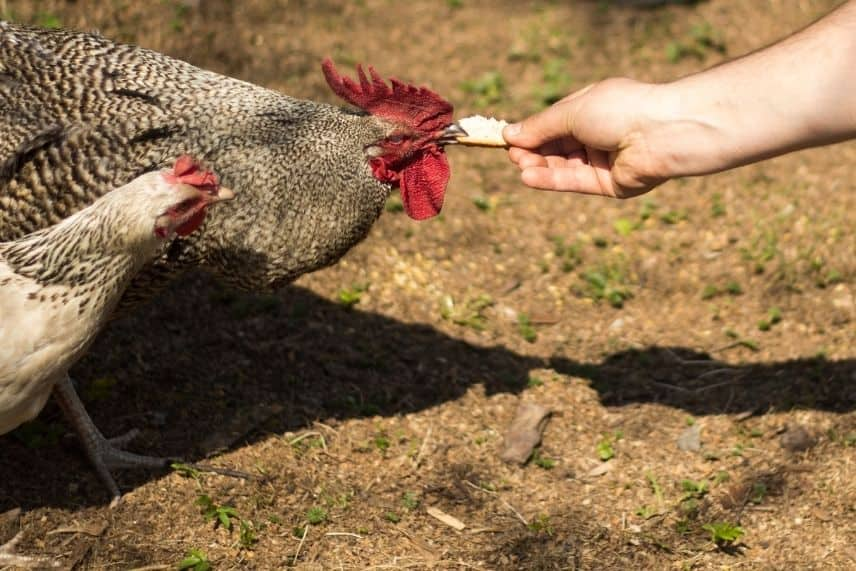
Bread can be offered to chickens in small amounts and occasionally.
But this should be done only occasionally, about once or twice a week. As for crumbs and crusts of hard bread, they can be given to chickens as a treat, meaning in moderation.
- Subscribe!
- Contents
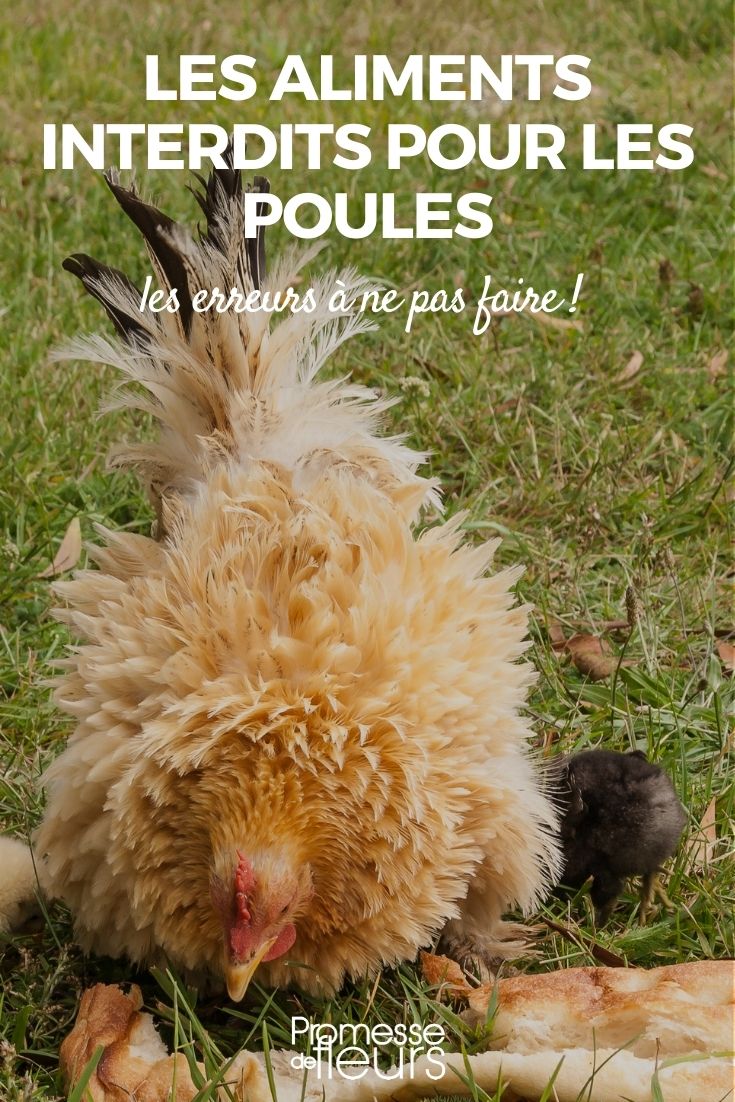































Comments